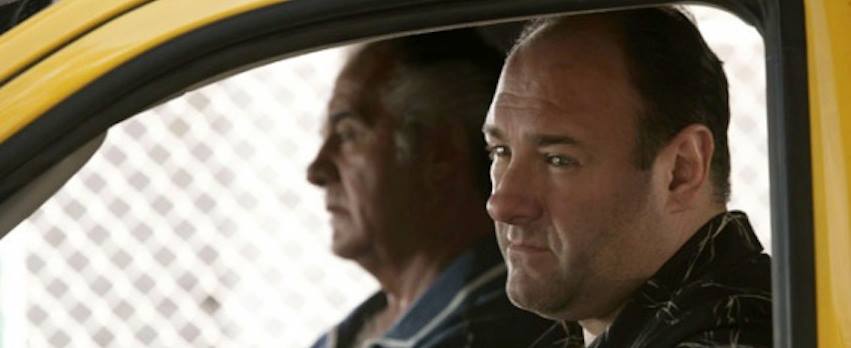
Keith Richards once said that hearing rock and roll turned his childhood from black and white into technicolor. Those moments happen. They’re the inflection points of art and culture, the wind that turns the sails. They’re the moments when artists sear themselves into the consciousness of new audiences, change those audiences, and change the world.
On February 7, 1999 an anxiety-ridden thug went from padding down his driveway in a fluffy white bathrobe to garroting an enemy while his daughter interviewed for college.
No one did that on television.
Television was for Jennifer Aniston, for evil twins, for apartments the characters could never afford. Not for middle-aged fat men and Oedipal nightmares.
Not for the things you cannot change. Not for life.
14 years later, it’s easy to forget how insipid most TV was before The Sopranos, before Chase and Gandolfini invented tapestries of humanity in 13 act arcs.
Go back and look: see how many sitcoms and self-contained “dramas” you can watch before you get queasy. Film was the medium of the human condition; TV was something to kill time. 14 years later, it’s largely reversed.
David Chase and James Gandolfini made television grow up.
Even now, it’s difficult to list the gems they wove into 86 hours, how many things they got right. Time. Ambivalence. Aged parents. Rage, and its price. The guilt of a father passing on his damaged genes. The moral outrage of a sociopath trying to reform, for a while. Imagining Isabella, returning to Carmela. The ducks. Sunrise in Vegas, AJ in the pool. Trying to manage Pussy, Richie, Tony B, Christopher – towards what end?
Life.
Because one day, hopefully, you can remember the times that were good.
Much will be written on why The Sopranos is the greatest television work of all time. By the time something comes along that can touch it, television will be gone.
Even now, as The Sopranos‘ finest children (Breaking Bad and Mad Men) head into the the final stretch, the Platinum Age of Television is ending. In the next 14 years, TV will become something else, something so dissimilar that the phrase “TV” may be like icebox, a relic from a grandmother.
James Gandolfini was too big to hide and too vital to disappear. He was the Elvis of modern television. He left us much more than we could have hoped for, a prism of our time in a thousand irreducible bursts of heart. His work will outlive us all. Beyond that, it’s none of our business.
Most artists chase the times. A few make them. There will never be another Beatles. There will never be another Picasso. There will never be a television performer as fine as Jim Gandolfini.
And away we go.




